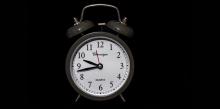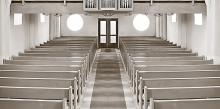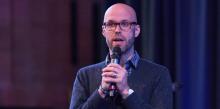By Debra McKinney Banks
Visit a Seventh-day Adventist church these days, and it is no longer guaranteed that the service will start at 11 a.m. No one really knows the history of when or where the 11 o’clock Sabbath worship time began. Plausible theories from pastors and historians posit that during more agrarian times, farming families needed to tend to the livestock and finish the chores before attending church. Whatever the reason, most people don’t maintain that farming lifestyle anymore. Today some pastors have discovered that holding Sabbath services at non-traditional times—either before or after 11—are becoming more of a necessity to meet the missional needs of their flocks.










 Story by Anna Bartlett
Story by Anna Bartlett